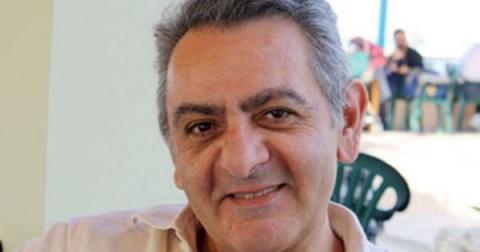
This is an age-old question that has preoccupied and consumed some of the most prominent thinkers of previous eras. Plato, for example, believed that we know certain things at birth, while radical empiricists replied that everything we know, we know from experience. In the modern era, most of those who identify with conservatism or some sort of rightwing politics have answered, “yes, human nature exists. It is embodied by a propensity for violence and domination or an inherent drive to own things or both. Meanwhile, most of those who seek change and identify with some sort of leftwing politics have replied, “no, we are blank pages at birth, and our lives write these pages, especially our economic conditions.” The American academic Noam Chomsky, for his part, says “yes and no.”
Indeed, the public intellectual in Chomsky, who comes from an anarchist background tinged with Marxism, focused on particular causes and sources in interpreting events. Rather, in many cases, he put them down to the conspiracies of a single actor, the United States - a state he hated, whether it was the oppressor or the oppressed. On the other hand, Chomsky the linguist maintained that humans are born with capacities that we need not have undergone anything to possess.
This, at the end of the day, is among the manifestations of human nature.
Since 1957, with his short book ‘Syntactic Structures,’ language, has been presented as something that, unlike the body’s familiar physical systems, grows in the mind. The acquisition of language is thus tied to biology, as we are born with an intrinsic ability to learn it. We are born with this “initial state” or mental capacity, which is represented in newborn children’s possession of a “language acquisition device” (LAD).
In fact, children are never born into this world without an array of linguistic skills and grammatical rules that they know and use unconsciously. As for their environment, it gives them little more than the vocabulary that they pour into this ready-made grammar, i.e., the LAD. This means that grammar, which is already in the brain at birth, exists independently of its acquired uses.
The fact is that the remarkable speed and ease that distinguish children’s acquisition of language suggest that this a-priori knowledge does indeed exist, leaving no need to exert any particular effort to learn it. Indeed, children learn their first words between the first ten and twelve months of their lives. After eighteen months, their reserve includes 50 words, and terms continue to accumulate exponentially over subsequent months, with their reserve increasing to around 500 words by the time they are two years old, at which point the speed of acquisition begins to decrease while the reserve continues to grow. Children undergo this process before developing extremely basic skills and abilities, like adding 2 and 2, using the lavatory on their own, or tying their shoelaces.
While children do, of course, make many mistakes, they do not make mistakes that contradict with how the “language acquisition device” function within them. A child, for example, will not say: “walk on I the road” when he wants to say: “I walk on the road,” nor does he say: “dresses Camile Maher like” instead of “Camile dresses like Maher.”
However, with regard to language, we also have this universalism that applies to its rules. We share these rules just like we all hear and see or chew food and have sex in the same way.
Chomsky and his students presented tens of examples of how the divergent languages and milieus children are born into do not preclude them from sharing an almost singular sound pattern that stems from the uniformity of the human mind. Of course, this does not imply that children are born with a specific language or the rules and vocabulary of any particular language.
They all undergo the same stages of linguistic development. And, in reacting to sounds, they distinguish between those that carry meaning, which they listen to contemplatively, and gibberish, which amuses them or induces laughter.
And while all the world languages share the same fundamental structure, that is, “universal rules,” in that they all include several nouns, verbs, and adjectives, all children are more comfortable pronouncing the consonants that come out from the lips, such as the letter B (or its equivalent in other languages), than other consonants. They also find it easier to pronounce the vowels that do not rise in the mouth as they are being spoken, such as “a” and “o,” preferring them over those that do rise in the mouth, like “e” and “u.” And this is all independent of how prevalent these sounds are in their native languages.
Chomsky (along with the German-American linguist and neuroscientist Eric Lenneberg, who did not live long) played a major role in bringing about a paradigm shift in 20th-century linguistics. Their research went against the common wisdom of the time, when it was widely believed that language is something we learn by imitating and observing others. This change was not made without stirring sharp and continuous debates. There are linguistic, psychological, and medical arguments and counter-arguments, the most prominent of which are that linguistic studies did not present sufficient evidence and that, with time, Chomsky made amendments and revisions to his works that weakened them. He has also been accused of essentialism and of having done little more than reduce his rationality to biological mechanisms. On the other hand, some defended him by stressing that his universalist theory undermines racist ideas or by arguing that by pushing back against empiricism, he fortified his association with teleological consciousness. These are only snippets of debate that raged over Chomsky’s ideas, and even today, the speculators continue to speculate. Regardless of whether or not human nature exists, these theories, often dubbed “generative” or “transformational,” nonetheless undoubtedly left a massive impact on an array of fields ranging from psychology and philosophy to mathematics, computer science and beyond...












